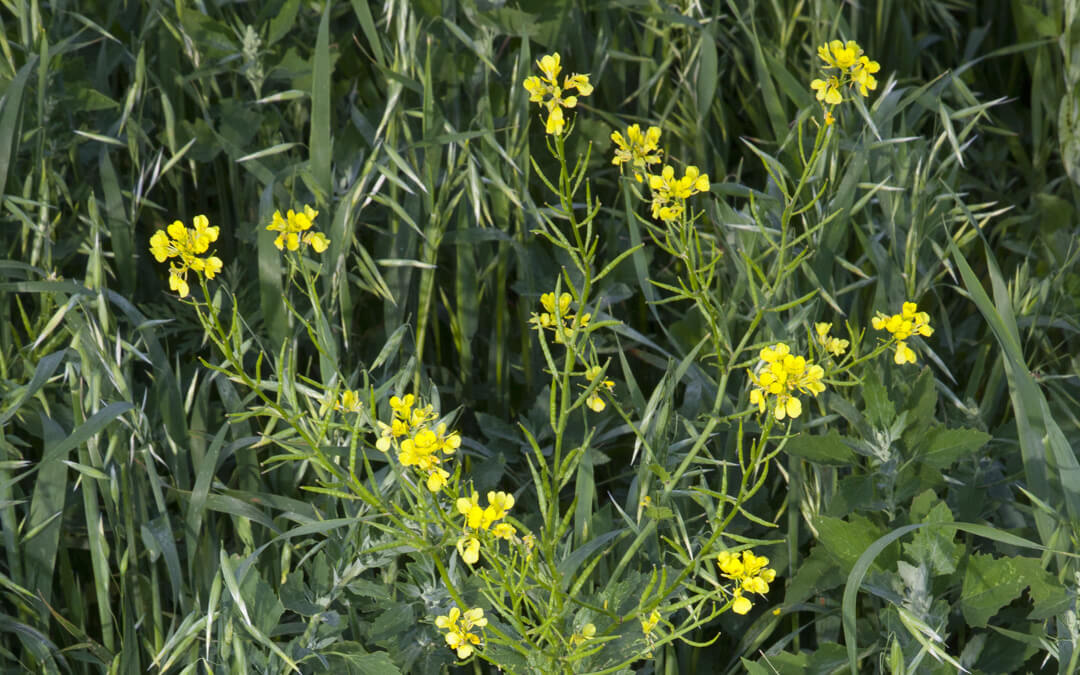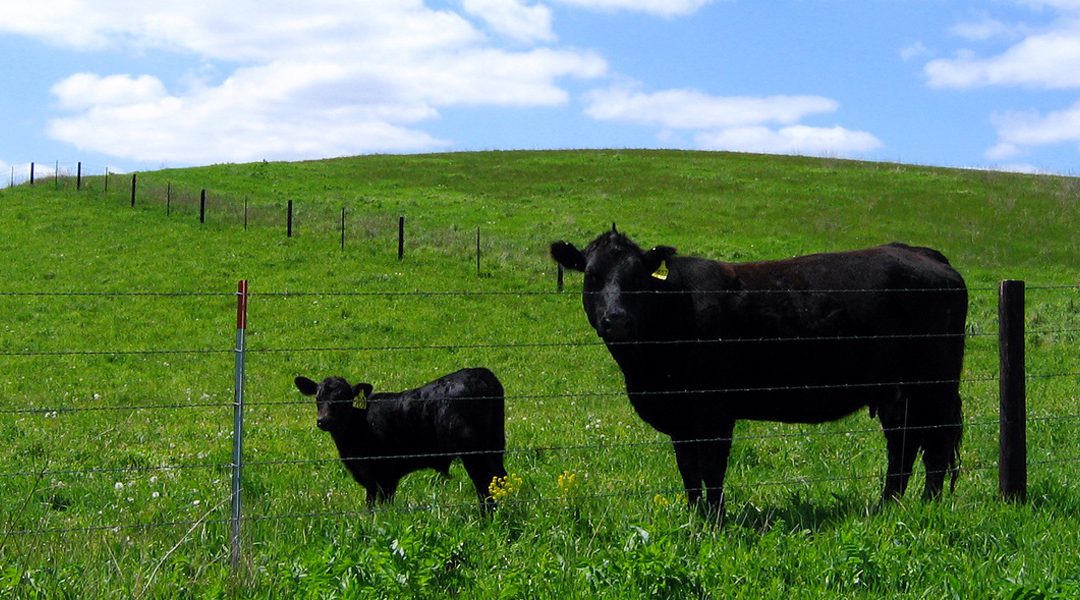
Facing Your Fears
Mustard plants were showing up in this oat field of a Pedogenesis customer in 2016. At our recommendation, the farmer treated the crop with a foliar feed of enhancing minerals that gave the crop more vigor to overcome the growing weeds.
Growing organic doesn’t have to mean lots of big weeds
Does making the switch to organic mean you are going to have to have fields overgrown with weeds? The picturesque weed-free field sometimes seems to be in sharp contrast to organic reality, but it doesn’t have to be. All soil has some weeds, but controlling the weeds is the key.
There is a saying that a “healthy soil has no weeds.” The control measures change when you when have an organic farm because you cannot use pesticides to control weeds. Tillage, rotation, and more importantly, balancing the soil, will change the environment so the weeds won’t like it anymore. Foxtail barley and thistles thrive in certain soil conditions because they like those conditions. Change the soil conditions and the weeds won’t like it there anymore.
Organic weed control tools are
- First, balance the soil and change the soil environment
- Use more tillage tools
- Plant in narrow rows, with a higher planting population with some crops
- Cultivate row crops and even use other tillage tools as the plant emerges and grows, such as rotary hoes or flex drags over the growing crop after emergence
- Use manual labor to clean crops with the highest return
- Apply weed-deterring minerals to growing crops.
The real key to weed determent is vigorous crop growth, especially after they have formed a canopy that shades the soil surface. We have worked with organic farmers who have had very successful efforts deterring weeds. Our Premium Growing System is designed to recondition your soil to create the ideal environment to feed your crops. With a vigorous crop, you won’t have to fear a field full of unsightly weeds.
What are your biggest weed frustrations or fears? Comment below.
Call or email us for more information.
1-218-630-5531 Contact Us

